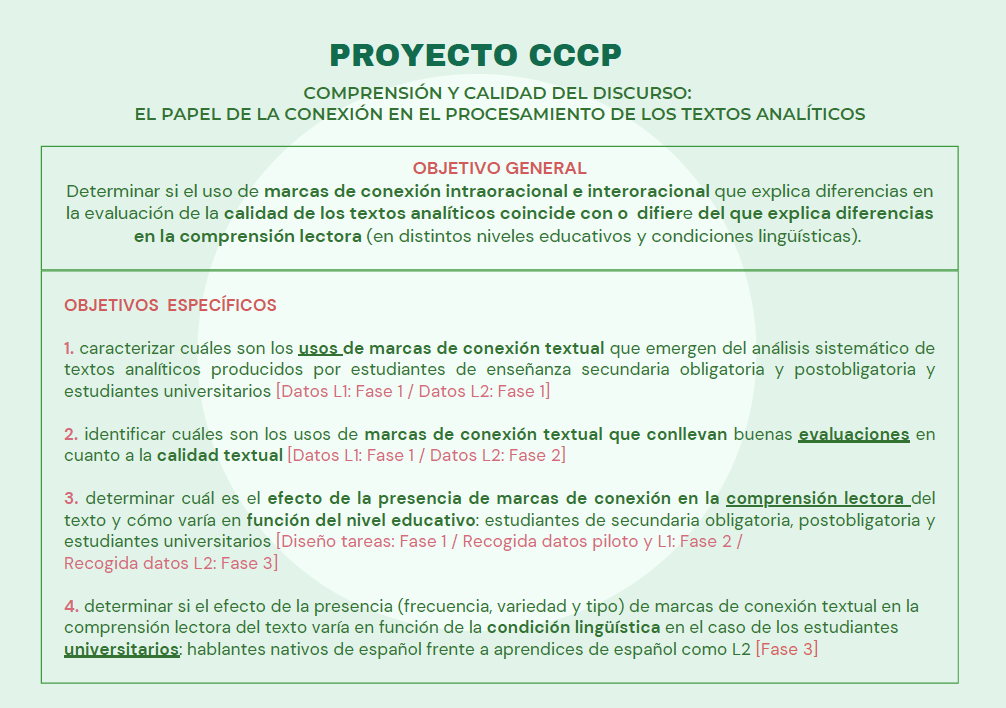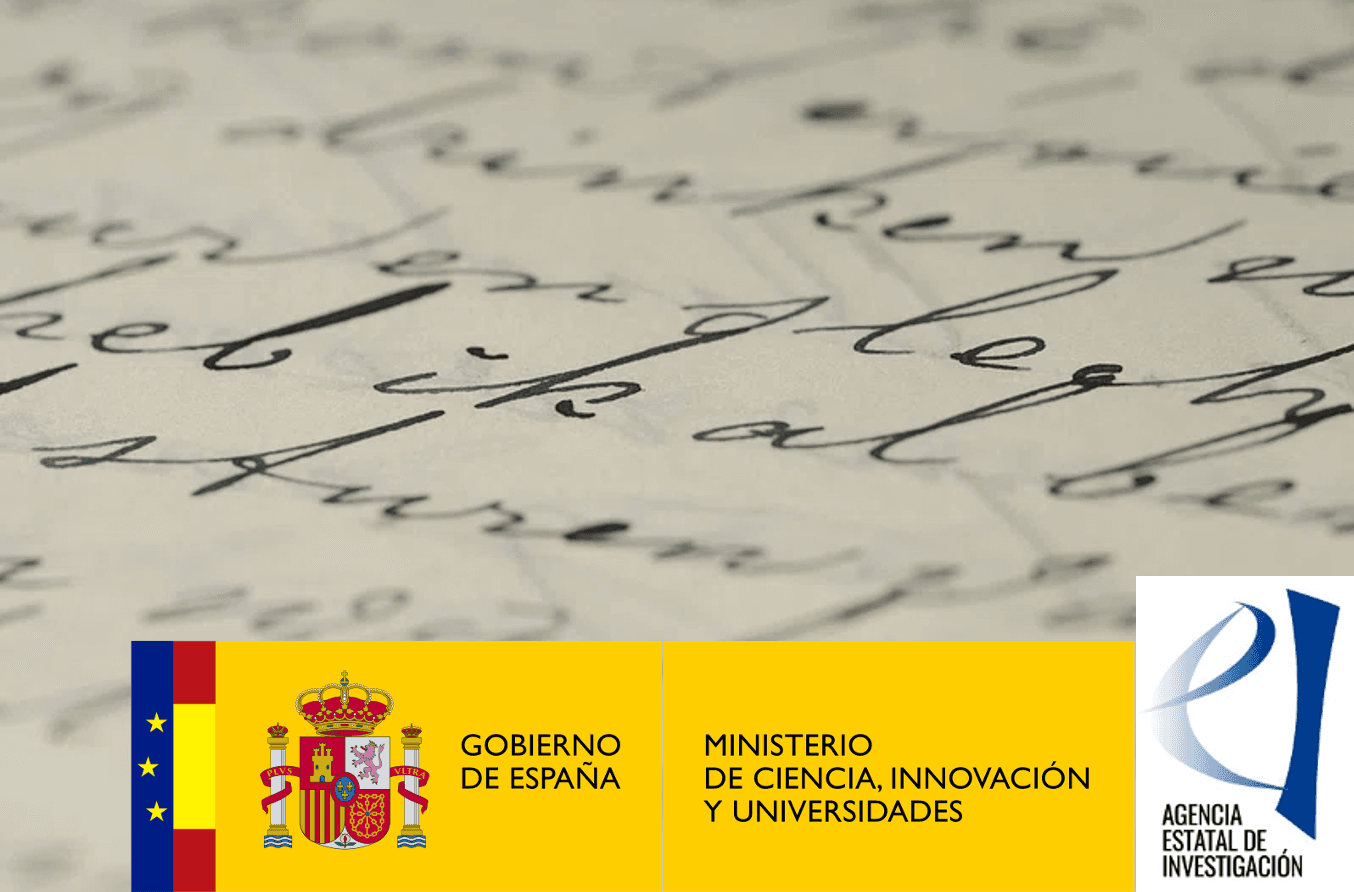Discourse comprehension & text quality: the role of connectivity in the processing of analytical texts (CCCP)
- Principal Investigator(s): Melina Aparici with Remei González, Iban Mañas, Rocío Cuberos, Elisa Rosado, Alondra Camus
- Funding agency: Ministry of Science and Innovation
- Amount: €54,571.00
- Duration: 2021-2024
- Reference: PID2020-119555GA-I00
Written language proficiency, key to academic and professional success, constitutes a developmental milestone that implies the combination of two fundamental abilities: reading comprehension and written text production. Moreover, when we read a text, we inevitably judge and evaluate its quality, and our judgments are determined by factors of diverse nature that include, crucially, how information is structured and connected.
The study we propose examines the connections between the comprehension and evaluation of written texts in relation to connectivity devices which, according to previous studies, guide comprehension processes, and affect external evaluations of text quality. To do so, we will design experimental tasks for investigating the role of cohesive devices in written text comprehension. Our analysis will compare online and offline measures of reading comprehension with actual use of devices and the evaluations provided by external judges.

Studies on reading comprehension processes have rarely considered their relation with the quality of the text: both aspects have been studied independently and the relation between them is little known. Previous research has shown that the use of explicit connectivity mechanisms is an indicator of text quality. However, it is unclear how their presence influences reading comprehension: while some studies find that they facilitate text processing and guide the relation among sections of discourse, others indicate that certain subordinating connectives are difficult to process. Consequently, we speculate whether the facilitating effect of cohesive elements at the discourse level can compensate for the difficulty implied in syntactic complexity, and whether such facilitating effect operates with all types of semantic relations.
The goal of this project is to determine whether these text quality indicators affect discourse processing and facilitate their comprehension, at different school levels and in analytical texts, particularly important in academic contexts. We aim at discerning the possible differences between reading to evaluate and reading to comprehend. We will design a series of reading comprehension experiments adapted to the school level of the participants (12, 16 years, and adults) and to their linguistic condition (Spanish native speakers vs L2 learners). In such experiments, to obtain measures of reading time and text comprehension, the presence of connective elements (syntactic and discursive) will be controlled. We will also design a task for evaluating the appropriateness of syntactic and discourse connectives in specific discourse contexts; this will provide information on how their presence is evaluated by the participants.
Determining how the occurrence of text connectives facilitates reading comprehension will shed light on the nature and development of text comprehension abilities. The comparison of two types of data will unveil the specific nature of the relation between what facilitates reading and what is valued in the assessment of text quality. All in all, we expect to contribute to the actual knowledge about how the comprehension and production of analytical texts interact and develop.
